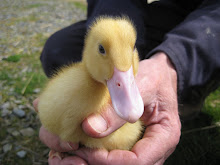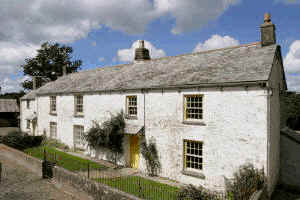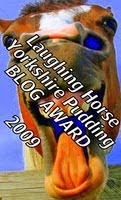 Johnny Depp and Janet Street-Porter must have been intimate a trio of decades ago and Russell Brand is the result.
Johnny Depp and Janet Street-Porter must have been intimate a trio of decades ago and Russell Brand is the result.Brand's face has peered out at me from the back page of my Saturday Guardian sport section for some while, and although I normally bin the sport pages or use them for firelighting, I would rather read the back of a cereal packet than stare into space whilst visiting the bog.
Trapped with the sweaty muscular thigh pages or perforated 2-ply to choose from, Brand's column was digested. He has good style I thought - wish he was writing about something other than goals, balls and footie players.
And then last week (yes, I am dreadfully behind the times, he is probably already passée), there was Janet Street Porter's voice and character whanging out of Johnny Depp's face and body. A strange cross Atlantic fusion that had me unhover my finger from the remote.
I think I'll ask the clever chap at The Spine to do a melding of Janet and John and see if my suspicions can be validated.
(Mopsa desperately needed to think about something other than MEAT. Seven lambs and two hoggets picked up from the butcher today and distributed, alongside the offal which the butcher smilingly gave me in a huge bag with all the lights so I had to do my Hannibal Lecter bit and remove the livers and hearts from the rest of the innards. Then I plucked pheasants. Don't fancy tonight's dreams at all at all.


























